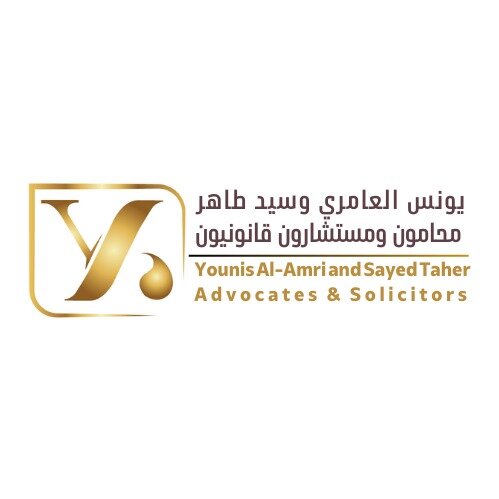Best Public-Private Partnerships (PPP) Lawyers in Muscat
Share your needs with us, get contacted by law firms.
Free. Takes 2 min.
List of the best lawyers in Muscat, Oman
About Public-Private Partnerships (PPP) Law in Muscat, Oman
Public-Private Partnerships, commonly known as PPPs, are collaborative arrangements where the government partners with private sector entities to deliver public services or infrastructure projects. In Muscat, Oman, the government has prioritized PPPs to drive economic diversification, accelerate infrastructure development, and enhance public services. The legal landscape for PPPs in Oman is governed by a comprehensive legal framework that aims to facilitate fair, transparent, and effective partnership models between public and private participants.
Oman's commitment to advancing strategic infrastructure through PPPs is evident in projects across transportation, healthcare, education, energy, and utilities. The adoption of PPPs is seen as a means for promoting efficiency, sharing investment risks, and capitalizing on private sector expertise while serving the interests of the public.
Why You May Need a Lawyer
Legal support is crucial in the context of Public-Private Partnerships due to the complexity and high value of such projects. People and organizations may need a lawyer for the following reasons:
- Advising on structuring, negotiating, and drafting PPP project agreements
- Ensuring compliance with the local PPP law and related regulatory requirements
- Reviewing government tender documents and participating effectively in bidding processes
- Assisting with risk allocation, financing arrangements, and dispute resolution
- Facilitating interactions with government agencies and obtaining necessary permits and approvals
- Due diligence on potential partners or project sites
- Dealing with matters related to land acquisition, intellectual property, and environmental regulations
- Navigating joint venture agreements, subcontracts, and operations management contracts
Given these multifaceted needs, engaging a lawyer with expertise in Oman's PPP sector can help protect interests, avoid pitfalls, and ensure project success.
Local Laws Overview
The primary law governing Public-Private Partnerships in Oman is the Public-Private Partnership Law, Royal Decree 52/2019, which came into effect in July 2019. This law sets out the framework for the initiation, selection, approval, contracting, and oversight of PPP projects. Key highlights of the local laws relevant to PPPs in Muscat include:
- Establishment of the Public Authority for Privatization and Partnership (PAPP), which oversees PPP initiatives and implementation
- Clear procedures for project identification, feasibility assessment, and public tenders
- Transparent selection and evaluation criteria for private partners
- Requirements for the approval of PPP projects by relevant authorities
- Guidelines for contract negotiation, risk sharing, and project monitoring
- Special provisions on dispute resolution and management of unforeseen changes during the project term
- Rules concerning the termination of PPP agreements and transfer of project assets
- Integration with other related laws such as procurement, labor, tax, and environmental regulations
PPP contracts in Oman must balance the interests of the public while providing sufficient incentives and protections to the private sector. This comprehensive approach makes understanding and navigating the local legal environment important for all stakeholders.
Frequently Asked Questions
What is considered a Public-Private Partnership (PPP) in Muscat, Oman?
A PPP in Muscat is a long-term collaboration between a government entity and a private company, typically to build, finance, operate, and sometimes transfer infrastructure or provide public services.
Who regulates PPP projects in Oman?
The Public Authority for Privatization and Partnership (PAPP) is the main regulatory body overseeing PPP projects in Oman, including Muscat.
What sectors are open for PPP opportunities in Oman?
Oman welcomes PPP investments in diverse sectors such as transportation, healthcare, education, energy, water and wastewater, ports, housing, and digital infrastructure.
How does the selection process for PPP projects work?
The government selects projects through a competitive public tender process. Private sector participants respond to requests for proposals, and bids are evaluated based on technical and financial criteria.
What are the main legal risks in a PPP agreement?
Common legal risks include unclear risk allocation, regulatory changes, delays in approvals, disputes over payment terms, land and title issues, and challenges in contract enforcement.
Can a foreign company participate in PPP projects in Muscat?
Yes, foreign companies can participate, often through forming joint ventures or consortia with local partners, provided they comply with Oman's investment and partnership regulations.
What is the typical duration of a PPP contract in Oman?
PPP contracts in Oman can last from 10 to 30 years or more, depending on the nature and scale of the project.
How are disputes in PPP projects resolved?
Disputes are usually addressed through alternative dispute resolution mechanisms such as arbitration, as stipulated in the PPP agreement and in accordance with Omani law.
What approvals are required before starting a PPP project?
Approvals must be obtained from the PAPP and other relevant government agencies, covering aspects such as environmental impact, financial viability, and land use.
Can existing contracts be renegotiated if circumstances change?
Yes, PPP laws in Oman provide mechanisms to renegotiate certain contract terms in response to major unanticipated events like changes in law or force majeure situations, subject to mutual agreement.
Additional Resources
Several resources and organizations can assist those seeking further information or guidance on PPPs in Muscat, Oman:
- Public Authority for Privatization and Partnership (PAPP) - the central body for PPP projects and information
- Ministry of Finance - for regulatory updates and government tenders
- Oman Chamber of Commerce and Industry - facilitating business connections and supporting private companies
- Local law firms specializing in infrastructure, project finance, and commercial law
- Industry-specific regulatory bodies, such as the Ministry of Transport and Ministry of Health, for sectoral PPP matters
Attending relevant workshops, seminars, or industry conferences on PPPs in Oman can also provide valuable insights and contacts.
Next Steps
If you are considering participating in or initiating a Public-Private Partnership in Muscat, it is important to act methodically:
- Clearly define your objectives, resources, and expectations for the project
- Conduct preliminary research on potential opportunities and regulatory requirements
- Engage a qualified Omani lawyer or legal team specializing in PPPs early in the process
- Prepare all necessary documentation and conduct legal due diligence
- Participate in consultations with the PAPP or other relevant government authorities for guidance and approvals
- Remain proactive about monitoring legal and regulatory developments related to PPPs in Oman
Seeking timely legal advice not only helps safeguard your interests but also positions your PPP project for successful implementation in accordance with Omani laws and best practices.
Lawzana helps you find the best lawyers and law firms in Muscat through a curated and pre-screened list of qualified legal professionals. Our platform offers rankings and detailed profiles of attorneys and law firms, allowing you to compare based on practice areas, including Public-Private Partnerships (PPP), experience, and client feedback.
Each profile includes a description of the firm's areas of practice, client reviews, team members and partners, year of establishment, spoken languages, office locations, contact information, social media presence, and any published articles or resources. Most firms on our platform speak English and are experienced in both local and international legal matters.
Get a quote from top-rated law firms in Muscat, Oman — quickly, securely, and without unnecessary hassle.
Disclaimer:
The information provided on this page is for general informational purposes only and does not constitute legal advice. While we strive to ensure the accuracy and relevance of the content, legal information may change over time, and interpretations of the law can vary. You should always consult with a qualified legal professional for advice specific to your situation.
We disclaim all liability for actions taken or not taken based on the content of this page. If you believe any information is incorrect or outdated, please contact us, and we will review and update it where appropriate.

















